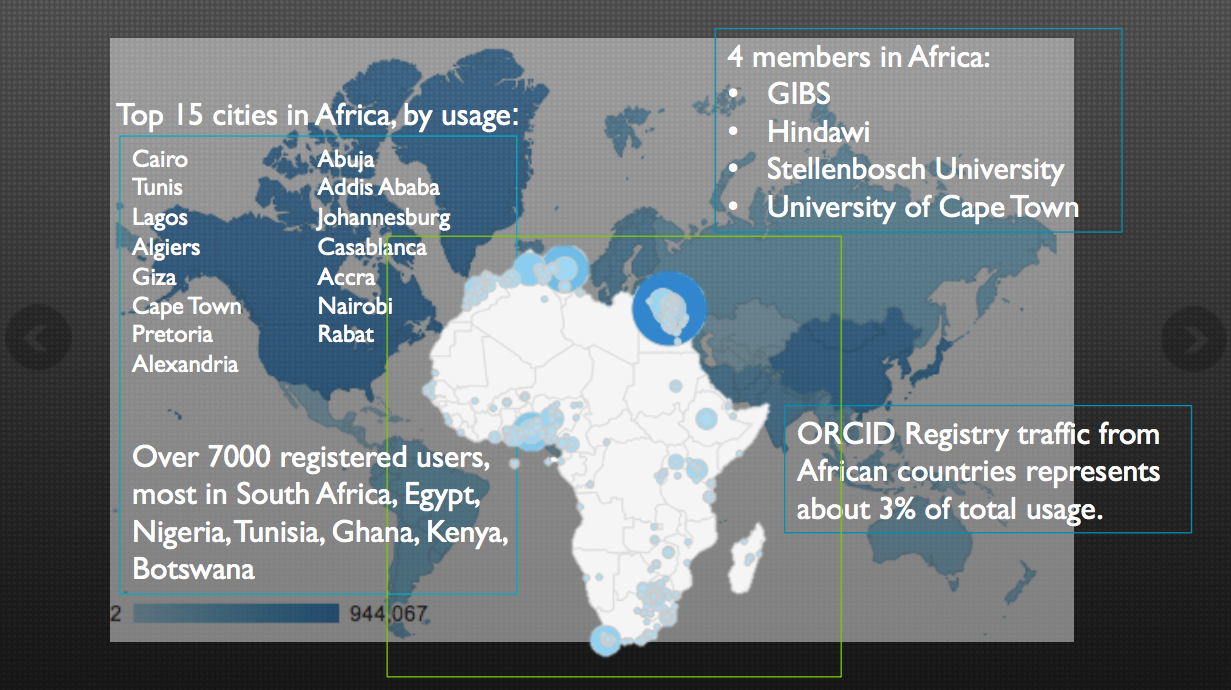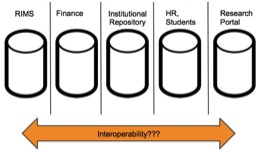I am very pleased to have joined ORCID as Regional Director: Africa & Middle East. I have enjoyed my first day, and look forward to interacting with the various stakeholders in our region and building the trust in digital research information. I am glad to be joining a “plumbing company”.
ORCID in Southern Africa

Interest in ORCID has been growing in South Africa. Over 3,500 researchers have registered, and three universities are ORCID members: University of Cape Town, Stellenbosch University, and the Gordon Institute of Business Science.
ORCID recently hosted a workshop at the Southern African Research and Innovation Management Association (SARIMA) 2015 Annual meeting, held in Johannesburg, South Africa. SARIMA is an organization that provides a platform for the promotion and facilitation of best practice in research and innovation management in Southern Africa. The workshop, co-hosted with CASRAI, and sponsored by Digital Science, Taylor & Francis, and Thomson Reuters, focused on the use of interoperability standards in research management. Participants included university research officers and funder program officers from across Southern Africa.
The challenge of siloed information
One point that resonated was the hindrance to research administration presented by siloed systems and data sources. Participants discussed the need for data sharing, and the opportunities presented in using standard data models and unique identifiers in building bridges between systems. David Baker of CASRAI attested to the inability of data to flow between systems on both a macro and micro level, adding how shared vocabulary is the key to interoperability in the research management ecosystem. Building on this, ORCID’s Laure Haak explained how ORCID provides the plumbing for research information – and the tools to build trust in digital information. By building persistent identifiers into the workflows there will be the notion of entering data once and using it many times.
It takes a village

After presentations by Taylor & Francis on how publishers are using persistent identifiers, from Digital Science about how research management systems are built using standard data models and identifiers, and by Thomson Reuters on how research impact analytics leverage data models and identifiers, it was clear that all parts of the research community are involved building data bridges. Next up in South Africa will be ORCID implementations by universities, in which researcher affiliations will be connected using ORCID–to–organization identifier workflows. In addition, the National Research Foundation (NRF) is looking into using ORCID in their national CV project. Together, publishers, vendors, data providers, universities, and funders—and the researchers themselves—adopting and implementing these standards can overcome silos and benefit from better data and reduced data entry burden. Something we can all cheer for.
